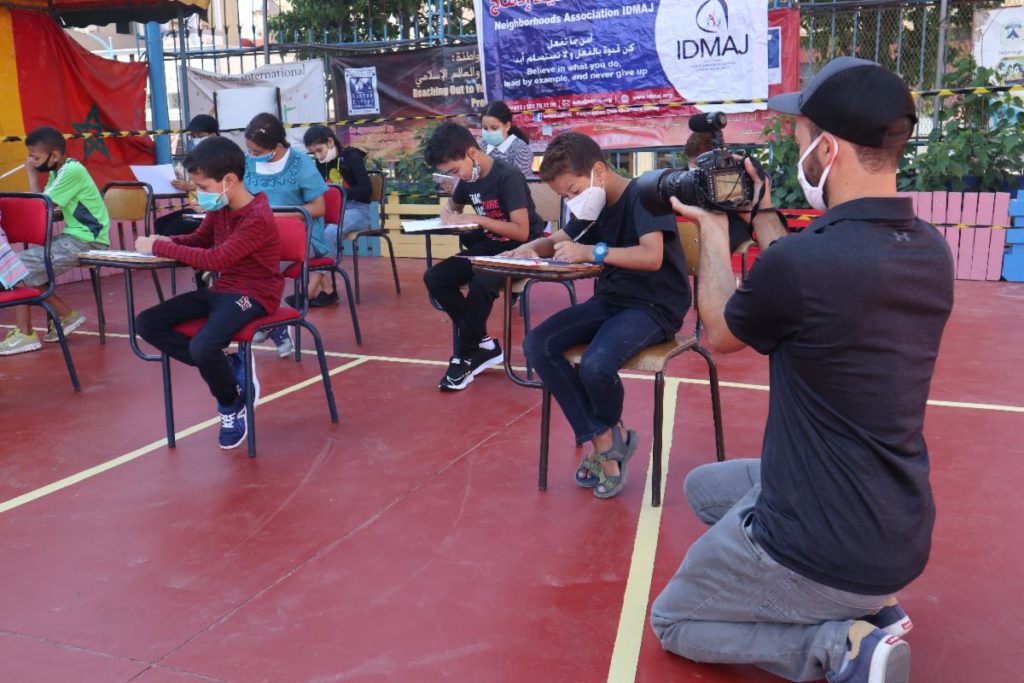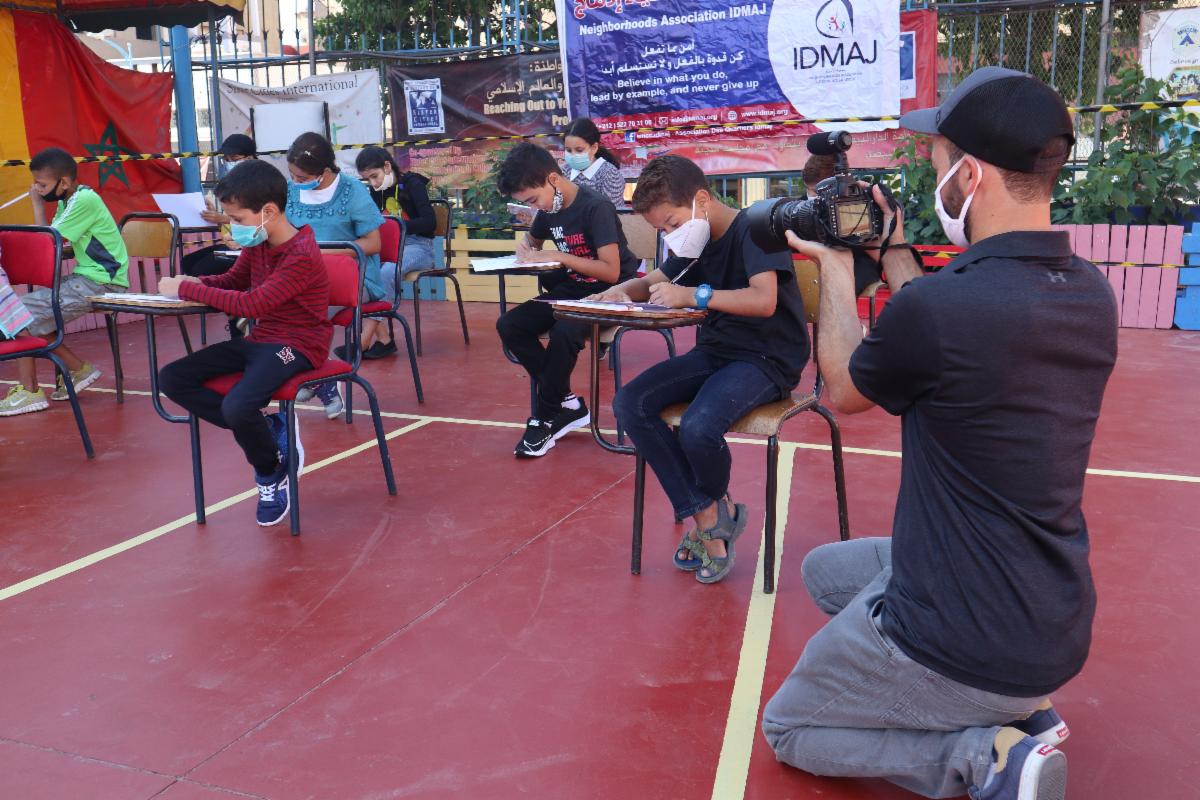A few years ago I started making documentary films, which has been a new experience for this longtime newspaper reporter, with one exception really. It also is not a lucrative pursuit.
I’ve done more than just traditional print over the years (decades). As a war correspondent in Iraq, I filed stories, photos and video from the field. I did online chats from the battlefield of Fallujah, with my portable satellite positioned just so in the dirt. Even though I’m not a digital native, like many Gen X-ers, I am completely comfortable crossing platforms and have done that over my career.

For me, a documentary is just a different way to tell a story. I still try to do it objectively and fairly.
My latest documentary, Morocco, Morocco, which airs on Chicago’s PBS station on May 5 and will also be available to watch on the website, is about the town of Morocco, Indiana. I spent nearly three years getting to know the people who lived there as we unraveled the mystery of how Morocco got its name. We also filmed in the kingdom of Morocco to connect the two places. It cost thousands of dollars to make, much of it raised through grants, including from the Pulitzer Center on Crisis Reporting, which also partners with Gateway Journalism Review. In the end, I almost wasn’t able to broadcast the film on PBS because I couldn’t afford the insurance required. (Pulitzer fortunately covered it.)
The film started as a point of curiosity, which is basically the genesis of all good feature stories or investigations no matter the platform. How did this little town in Middle America come to be named after the kingdom of Morocco? I have three Moroccan-born sons, and my oldest two–the third joined our family during the pandemic–were puzzled when we visited for the first time in 2109. “Where are all the Moroccans?” my then 4-year-old asked as he jumped off a merry-go-round at the playground we have since visited numerous times. He couldn’t understand why this Morocco didn’t look like the Morocco he knew.
His question started me on a journey that was the basis for the short film. It was the ultimate reporting project in many ways. It also required me to do something I’ve always had to do as a journalist on these kinds of stories. I had to convince people to talk to me. Even though Morocco, Indiana, is not too far from Chicago, I was the big city filmmaker who arrived in town with a crew of strangers and cameras to ask questions, filming people at the bowling alley, at the farmer’s market, at the diner and at the Methodist church. Most everyone was incredibly gracious, including the town president who made introductions and really made it possible for us to film as much and as long as we did.
As I talked to people, I made sure to point out that I also was Midwestern. The town has deep ties to the US veteran community, and some of our crew are combat veterans. That helped.
We didn’t come with too many preconceived notions because so many of us are from places just like Morocco, Indiana. We explored and asked questions and found ourselves endeared by and to the characters we met. Some of them became friends.
I was surprised then by the reaction of one of the people we featured when I emailed him that the film was finally finished and would be shown on TV. “Ever regretted answering a phone call or responding to an email?” he replied. “I hope this is not one of these times.”
Though I was initially taken aback, it reminded me how vulnerable people are when journalists–or filmmakers–show up, especially with all the rhetoric in recent years about our intentions and our ability to tell honest stories. People hand us their history and their dreams for the future and have to trust that we will do right by them.
Of course, my job as a journalist or filmmaker is not to go out of my way to make people look good. That’s a different profession. The town officials will likely be disappointed that we dealt with some of the issues around race that people brought up, inevitable in a mostly white town in Middle America. Longtime residents shared the struggles the town has had with economic development, even as it has attracted new business. The town is far from dying. But we didn’t make a marketing film.
In the end, we told a good story, an honest story, and we had a good time doing it. That’s what matters to any journalist, no matter the platform.
A version of this story first appeared in Publisher’s Auxiliary, the only national publication serving America’s community newspapers. It is published by the National Newspaper Association. GJR is partnering with Pub Aux to re-print Jackie Spinner’s monthly “Local Matters” column on our website. Spinner is the editor of Gateway Journalism Review. Follow her on Twitter @jackiespinner.
